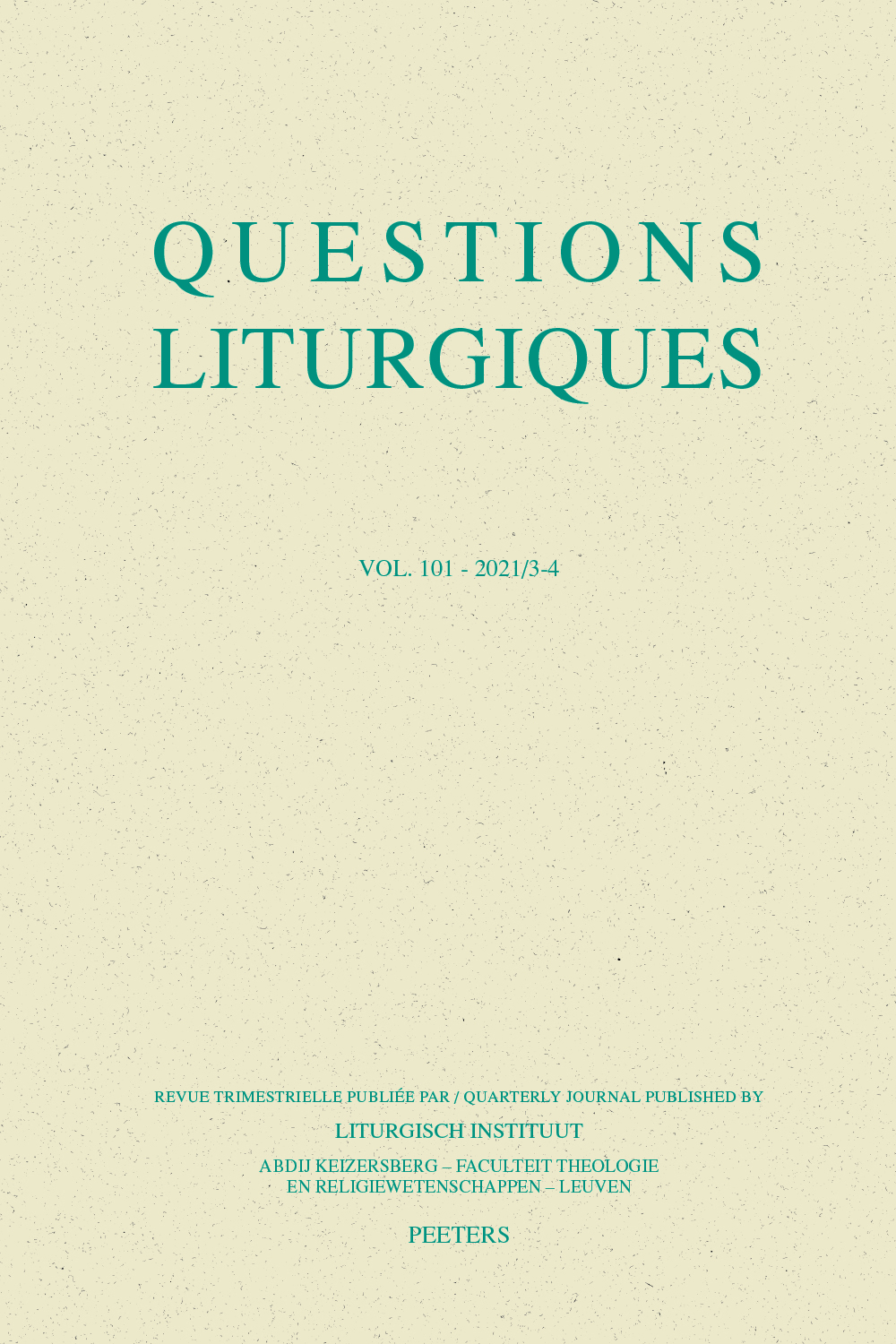 previous article in this issue previous article in this issue | next article in this issue  |

Preview first page |
Document Details : Title: Sacraments in Dialogue Subtitle: Opportunities for a Renewed Approach to the 'Rites of Passage' Author(s): WITHERINGTON, Timothy Derrick Journal: Questions Liturgiques/Studies in Liturgy Volume: 98 Issue: 3-4 Date: 2017 Pages: 196-220 DOI: 10.2143/QL.98.3.3285091 Abstract : While regular church attendance in Flanders is very low (and continuing to decrease), recent statistics have shown that the so-called sacramental ‘rites of passage’ surrounding moments of life transition retain their attracting power. Following upon Lieven Boeve’s theological analysis of the contemporary contextual situation as being post-Christian, it could be argued that the sacramental rites of passage are themselves functioning in a post-Christian way, that is, separated from their theological meanings in favour of emphasizing their anthropological/social dimensions. In such a context, one needs to utilize a sacramental theology which both manages to respect the irreducible particularity of the rites and the faith grounding them, on the one hand, and the post-Christian other in all his/her irreducible alterity, on the other. Here we propose the theological methodology of Louis-Marie Chauvet as providing a good means of doing this, though in order to do this a relecture of his theology is needed which deepens its hermeneutical dimension. In order to engage in this deepening, we here place Boeve’s theology of interruption and dialogue and Chauvet’s sacramental theology in conversation with each other, ended by proposing a relecture of Chauvet’s theology which is attentive to the contemporary attention afforded to difference and otherness. Tandis que l’assistance à la messe en Flandres est très basse (et continue à diminuer), des statistiques récentes ont montré que les ‘rites de passages’ sacramentels autour de moments de transition dans la vie maintiennent leur attractivité. Suivant les analyses théologiques de la situation contemporaine comme post-chrétienne par Lieven Boeve, on pourrait dire que ces rites sacramentels de passage euxmêmes fonctionnent d’une façon post-chrétienne, c’est-à-dire qu’ils sont séparés de leur signification théologiques en faveur d’une accentuation de leurs dimensions anthropologiques et sociales. Dans un tel contexte il faut utiliser une théologie sacramentaire qui succède à la fois à respecter l’irréductible particularité des rites et la foi qui les fonde, d’une part, et l’autre post-chrétien dans son irréductible altérité, d’autre part. Ici nous proposons la méthodologie théologique de Louis-Marie Chauvet comme fournissant une approche qui fait cela précisément. Toutefois, pour obtenir les buts, il faut une relecture de sa théologie qui approfondit ses aspects herméneutiques. Pour réaliser cet approfondissement nous juxtaposons ici la théologie de l’interruption et de dialogue à côté de la sacramentaire de Chauvet et nous les faisons dialoguer. Nous finissons avec une relecture de la théologie de Chauvet qui est attentive à l’attention qu’on donne aujourd’hui à différence et altérité. |
|


